William Archer, one of nine brothers, played a prominent role in Queensland’s early pastoral history.
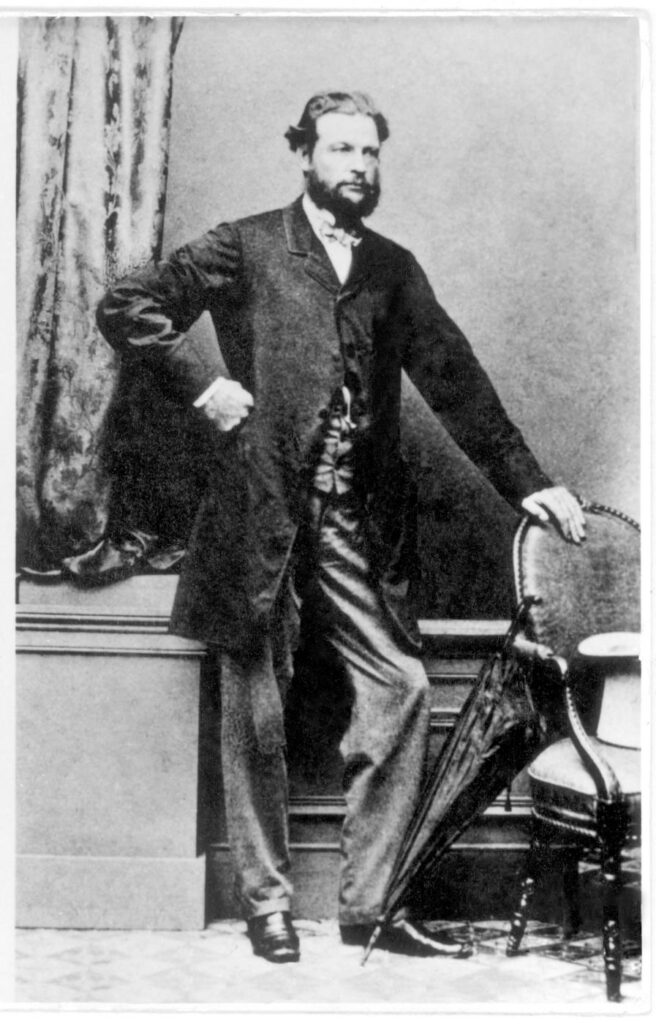
William Archer, one of nine brothers, played a prominent role in Queensland’s early pastoral history.

On November 16, 1957, Rockhampton proudly received its first aerial ambulance, a Cessna 182, during an official handover ceremony at Connor Park Airport.

Tragically, on June 7, 1958, the aircraft crashed in thick scrub near Edungalba during bad weather, resulting in the loss of all four occupants on board. The aircraft was insured for £8,000.
Hand coloured photograph showing boats on the river being observed by crowds on the riverbank. Buildings in Quay Street can be seen in the background. Sheds and jetties are pictured on the riverbank in the right foreground.
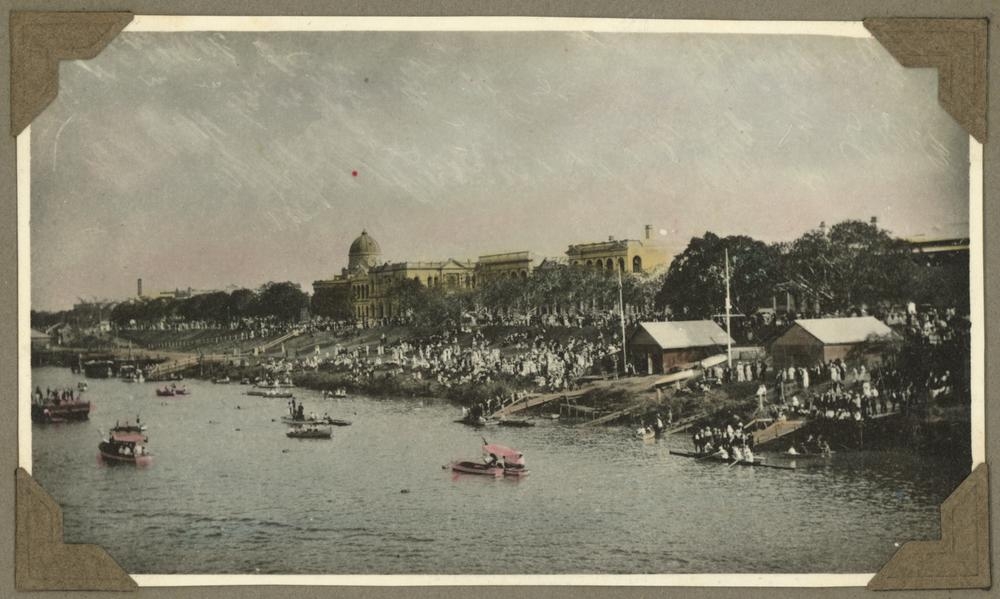
Reflecting on 1956 when the Melbourne Olympics torch passed through Rockhampton and surrounding towns. It was a significant moment for our city, as we proudly participated in this global event. The torch relay showcased our community’s connection to the worldwide Olympic movement.
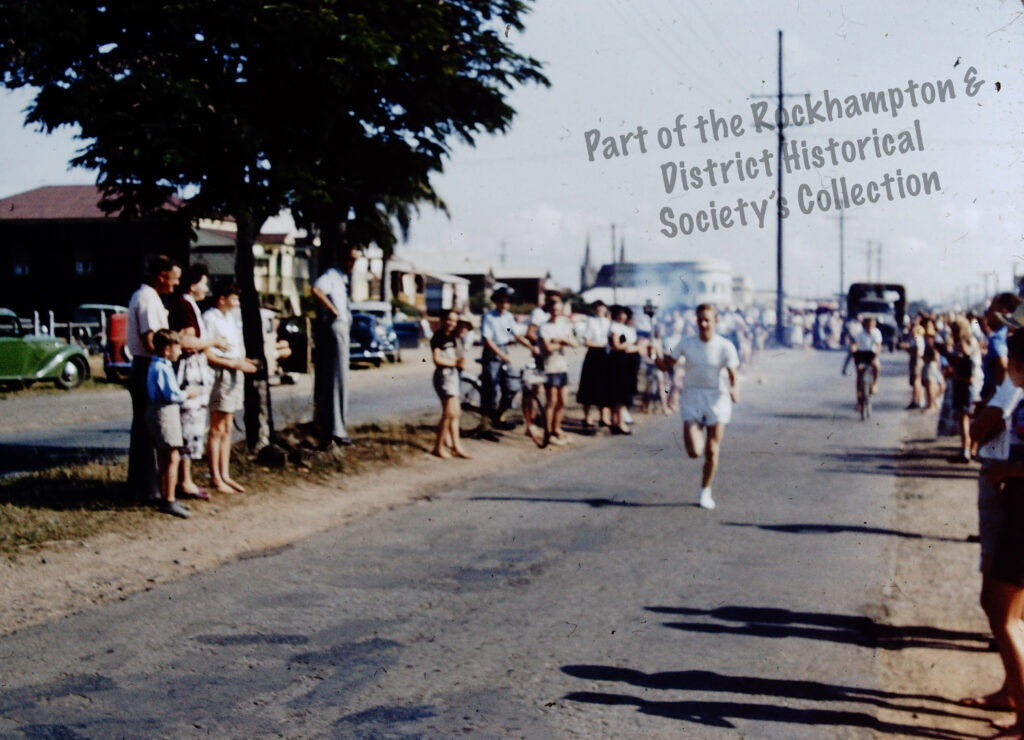
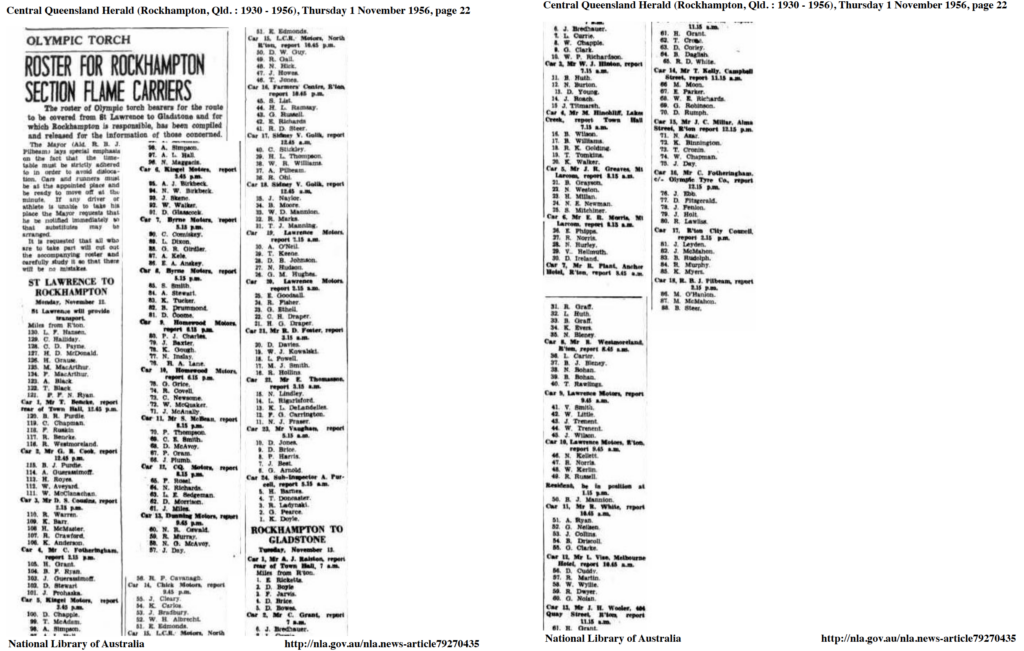
The Singing Ship is a monument in Emu Park dedicated to Captain James Cook, commemorating the 200th anniversary of his voyage through Keppel Bay in 1770. It was officially unveiled on 30th May 1970 by the Minister for Shipping, Ian Sinclair.
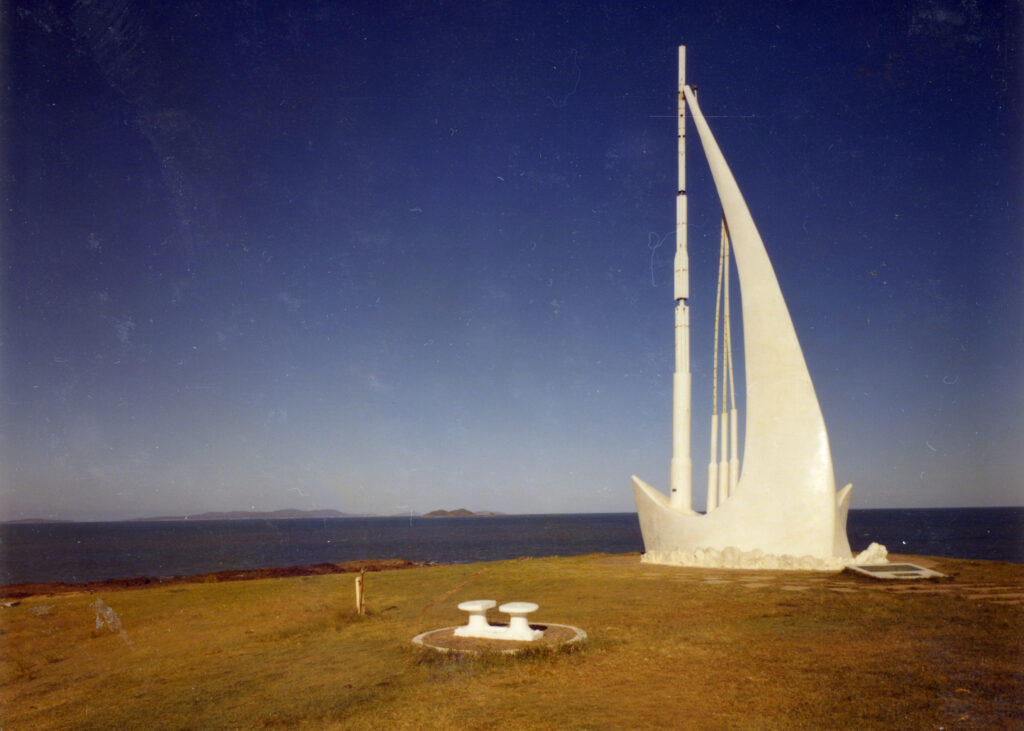
The monument was designed by Peggy Westmoreland in 1969 as part of a competition held by the Captain Cook Bicentenary Celebrations Committee. Westmoreland was a joint winner of the competition alongside an entry by the Lions Club of Yeppoon. Although Westmoreland initially abandoned her design and discarded it, her husband, John Westmoreland, retrieved it from the rubbish bin and encouraged her to complete and submit it.
Once the Captain Cook Bicentenary Celebrations Committee selected Westmoreland’s design to construct the Singing Ship, fundraising efforts began with a target of $5,000. While the majority of funds were raised through small donations, larger contributions came from various organizations, including the local shire councils, the Lions Club of Yeppoon, and other community groups.
The preferred site for the monument was Churchill’s Lookout on Constitution Hill. It was constructed by builders Steve and Isabel Kele, engineer David Thomas, and physics lecturer George Cain. Cain designed steel pipes that were incorporated into the monument, allowing the wind to pass through and make the ship “sing.” However, since the monument was originally built, modifications have been made to reduce the volume of the sounds it creates.
The monument stands 12 metres tall and represents the billowing sail, mast, and rigging of Captain Cook’s ship, the Endeavour, constructed from concrete and steel.
Five years after the official unveiling, a time capsule was placed at the base of the monument, scheduled to be opened in the year 2070.
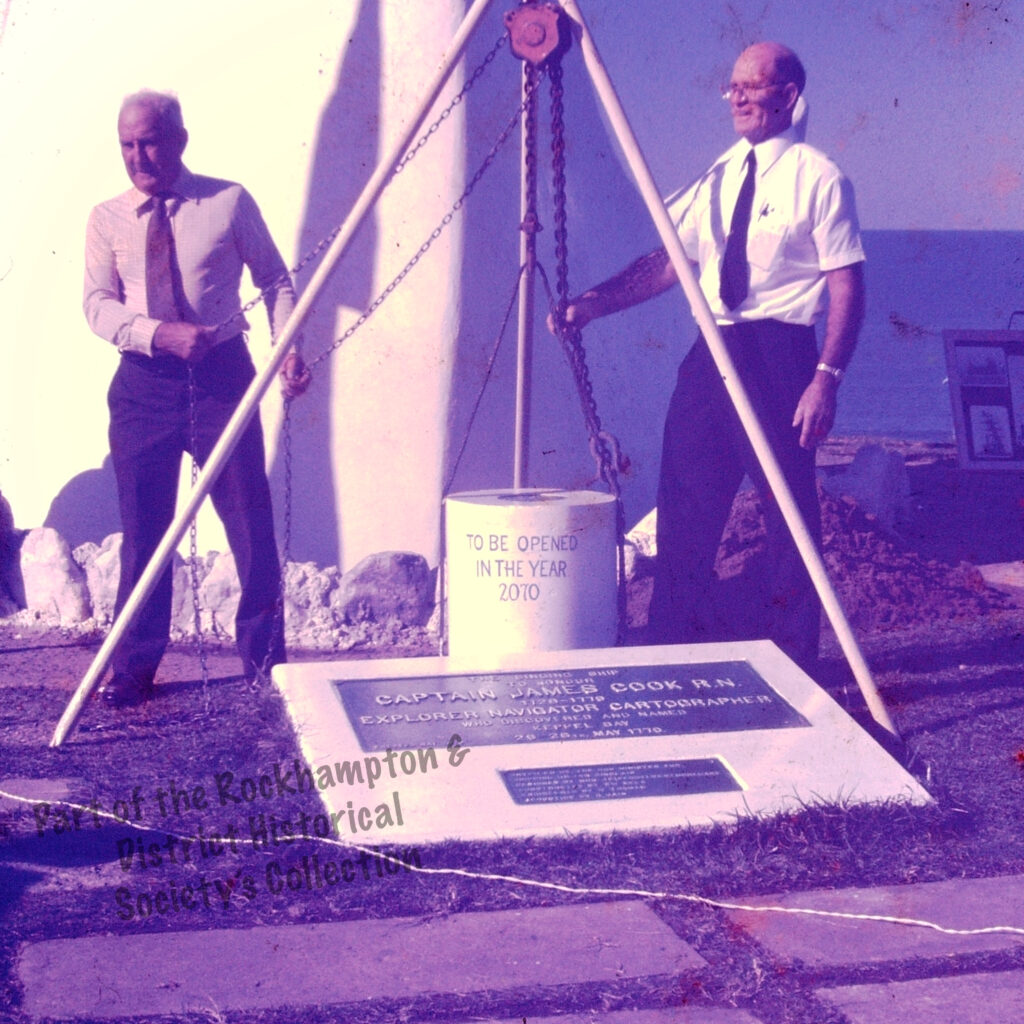
Rockhampton Railway Station, circa 1955
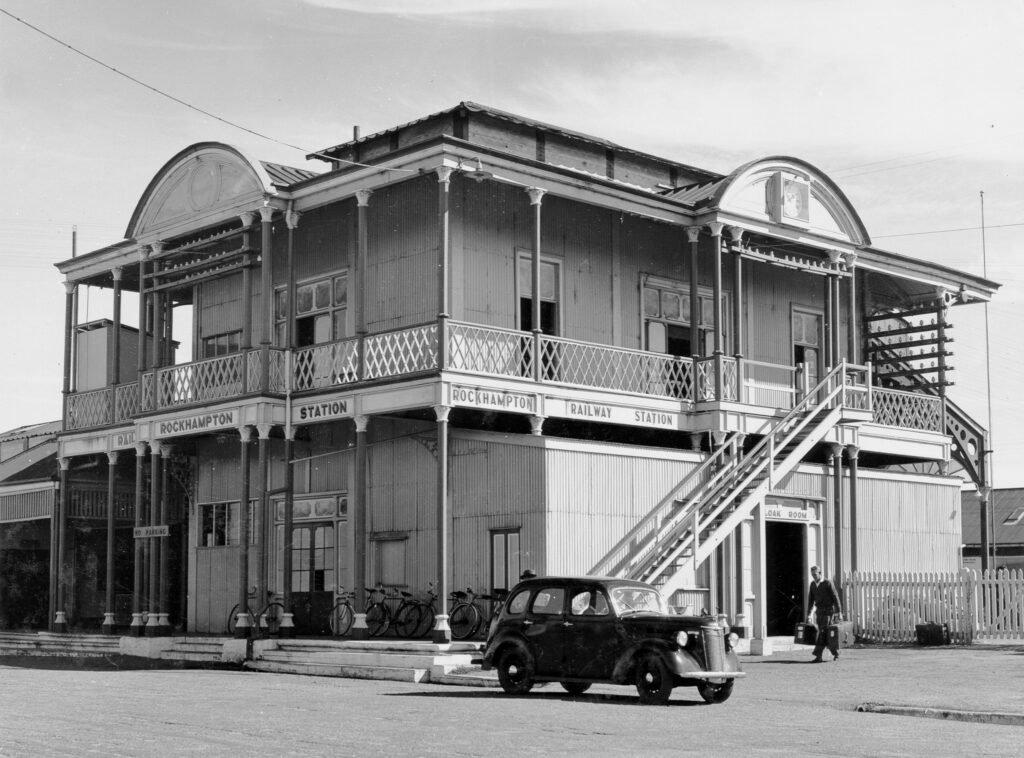
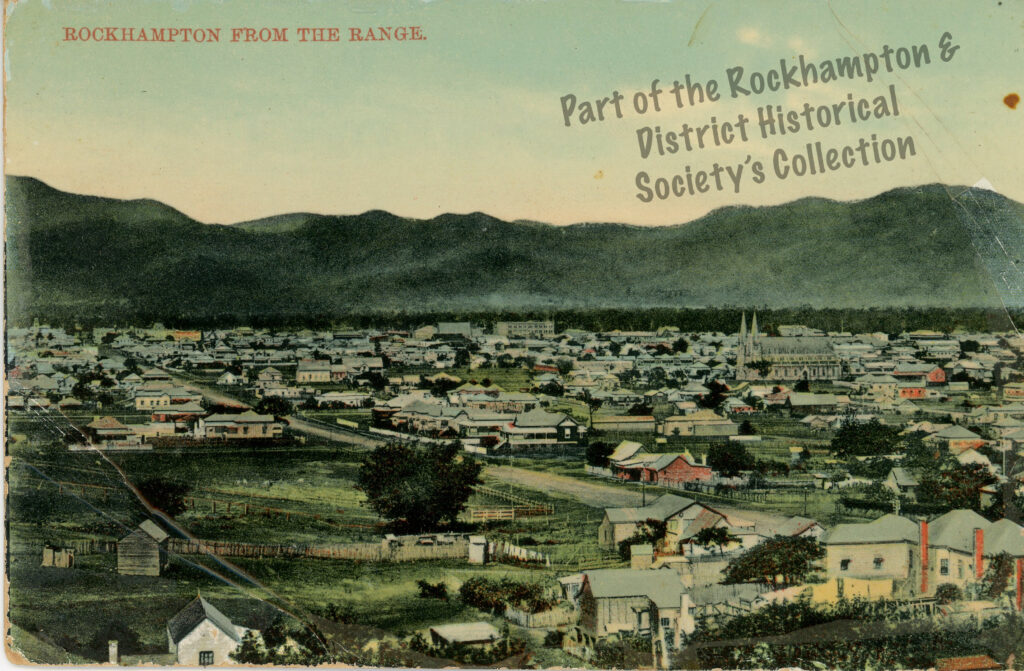
In the records of Rockhampton’s history, the year 1918 marked a momentous event – the city witnessed its most severe flooding on record. The Fitzroy River surged to an astounding 10.11 meters, an unprecedented height that had never been recorded to exceed 9 meters in the decades prior. This historic inundation is known as “The Great Rockhampton Flood of 1918.”
Take a captivating journey into the past with this historic tram photo, courtesy of the State Library of Queensland. From 1909 to 1939, Rockhampton had its own unique steam tram service, making it the sole regional city in Queensland with this service. Although the trams are gone, you can still experience their charm at the Archer Park Rail Museum. Hop on board what is believed to be the only operational Purrey Steam Tram in the world and discover the city’s remarkable tramway legacy.
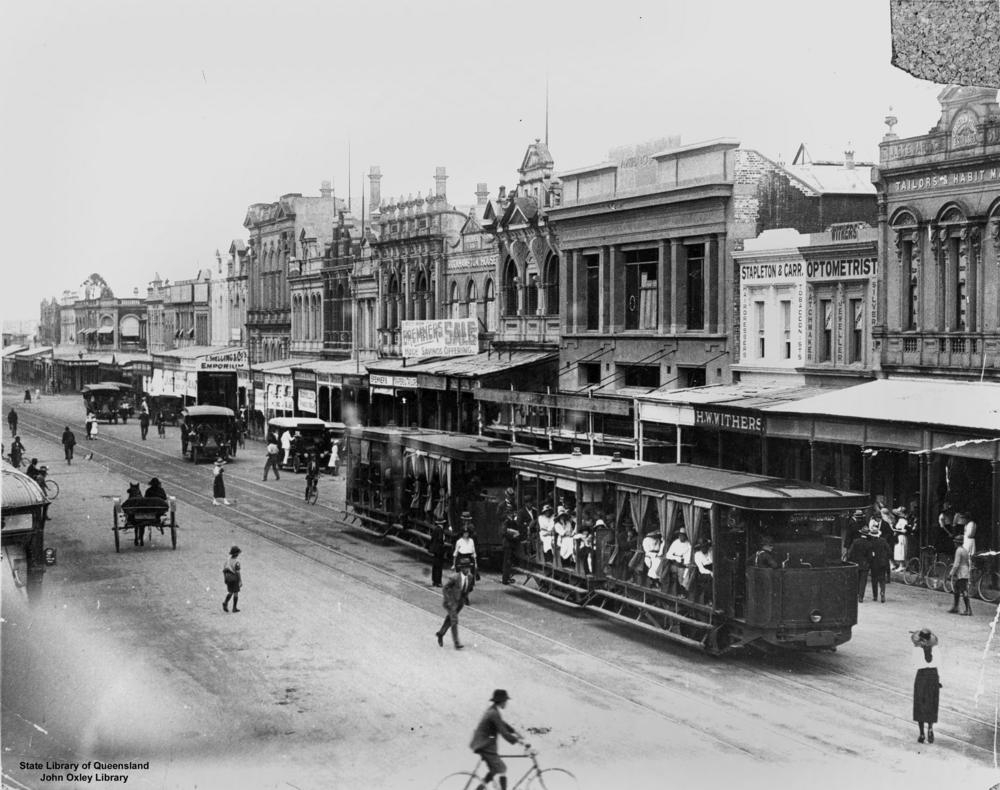
![]() Caption: Trams and other vehicles on East Street, Rockhampton, 1923
Caption: Trams and other vehicles on East Street, Rockhampton, 1923![]() Credit: State Library of Queensland
Credit: State Library of Queensland
The 2024 Rockhampton and District Historical Society Calendars are now available.